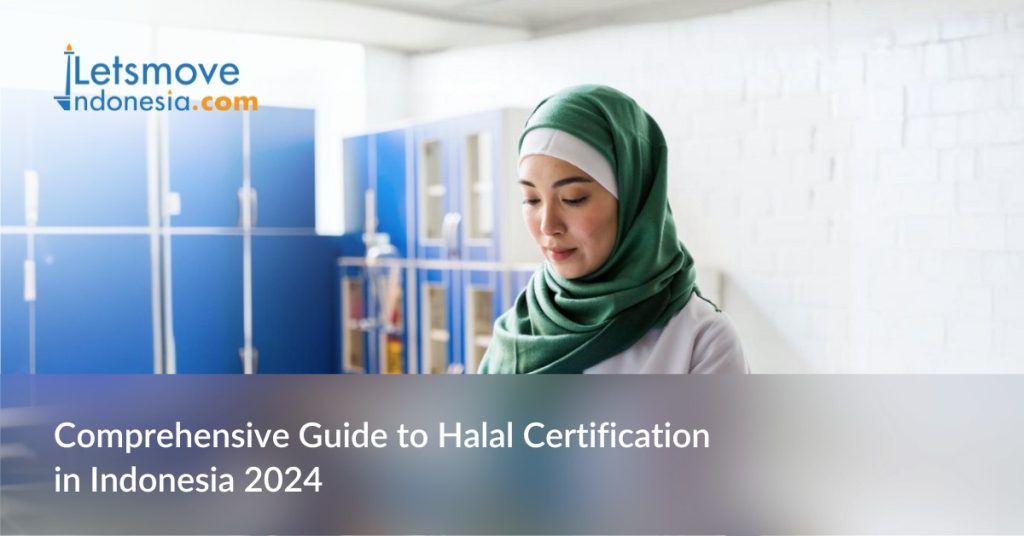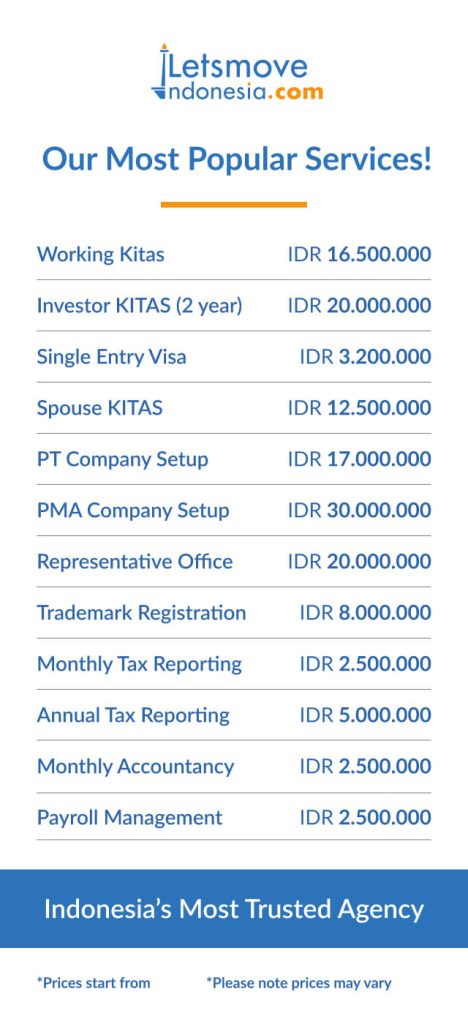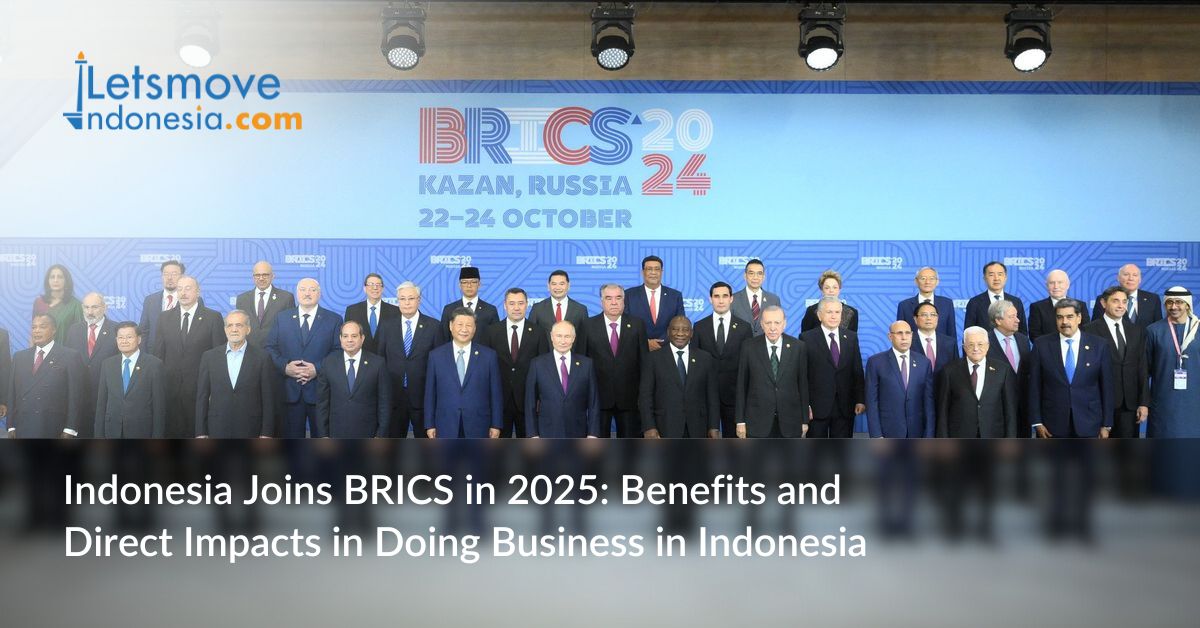Highlights
- The introduction of Government Regulation 39 of 2021 (GR 39/2021), halal certification is now mandatory for many products.
- Details regarding products that have to obtain mandatory halal certification.
- You must renew Halal Certification regularly, typically every four years, to maintain compliance.
Indonesia is on a mission to become the world’s largest Halal market. With the introduction of Government Regulation 39 of 2021 (GR 39/2021), halal certification is now mandatory for many products, including food, beverages, cosmetics, and pharmaceuticals. This regulation, effective from October 17, 2021, opens vast opportunities for businesses aiming to thrive locally and internationally.
In this article, we’ll guide you through the new halal standards and certification process in Indonesia to ensure your products meet the strict requirements set by Indonesian authorities.
Why does a consumed product-based business in Indonesia have to include halal inspection in their production process?
With a Muslim-majority population in Indonesia, providing clear information about the ingredients in halal products can help offer reassurance and build trust for consumers regarding the products they consume. The halal inspection is intended to ensure that raw materials are suitable for general consumption, particularly for the Muslim community.
Products Requiring Halal Certification
Under GR 39/2021, the following products must have halal certification to enter, circulate, and sell within Indonesia:
| Category | Examples |
| Food and Beverages | Raw, fresh, and processed foods, snacks, dairy, canned goods |
| Traditional Drugs & Supplements | Herbal medicines, dietary supplements, functional foods |
| OTC & Limited OTC Drugs | Over-the-counter drugs, pain relievers, health tonics |
| Hard Drugs | Antibiotics, antihypertensives, antidepressants |
| Fashion, Headdress & Accessories | Clothing, jewelry, bags, hijabs, belts, shoes household |
| , Muslim Praying & Office Products | Cleaning agents, prayer mats, stationery |
Exemption for Halal Certification
Government Regulation No. 39 of 2021 outlines exemptions for Indonesia Halal certification. If a product is made from ingredients considered haram or prohibited in Islamic Law, it is exempted from the obligation to be Halal-certified. These prohibited products include:
- Alcoholic drinks
- Pork, dog, and their derivatives
- Products with symbols or names that describe disobedience
- Products made with artificial flavour, citric acid, lecithin
New Halal Certification Standards for Products in Indonesia
Indonesia has introduced specific halal standards for several product categories to ensure compliance. Below are some of the major categories and requirements:
-
Food and Beverage Products
- All food and beverage products must be registered with BPOM by October 17, 2026.
- Labels must be in Indonesian, accessible, and include allergen warnings if applicable.
-
Traditional Drugs & Supplements
- These must not contain alcohol, pork, gelatin from non-halal sources, or ingredients from animals not slaughtered according to Islamic law.
-
OTC & Limited OTC Drugs
- All OTC drugs must be registered with BPOM and labeled in both Bahasa and English, with clear usage instructions and safety warnings.
-
Hard Drugs
- Registration with BPOM is mandatory, with complete information on composition, manufacturing, and clinical data. Psychotropics are excluded from halal requirements.
-
Fashion, Headdress & Accessories
- High-contact items must comply with BPOM standards, and animal-derived materials must be halal-certified.
-
Household, Muslim Praying & Office Products
- Household items, Muslim prayer items, and office products must be halal if they contain ingredients or materials derived from animals.
Also read: Businesses Must Have Halal Certification Starting from 18th October 2024
The 5-Step of Halal Certification Process in Indonesia
Obtaining halal certification in Indonesia is a key step for businesses wanting to meet the needs of Muslim consumers and comply with Indonesian regulations. Here’s a breakdown of the five essential steps to secure your certification:
1. Application Submission
Start by submitting an application to BPJPH, the official body for halal certification, with your registration forms and business license (NIB).
Lets Move Indonesia can streamline this process by helping you secure a Business Identification Number (NIB) and register your company in Indonesia!
2. Appointing an Internal Halal Supervisor
Appoint an Internal Halal Supervisor within your organisation to oversee halal compliance. You need to formalize this role with an official appointment letter (SK) and an Indonesian citizen must fill it. Required documentation includes:
- ID card (KTP)
- Training certificate
- Certificate of competence
- Curriculum vitae (CV)
3. Product Documentation
Next, ensure detailed product documentation is available, covering all materials and ingredients to guarantee compliance with halal standards.
4. Halal Systems Manual
Submit a Halal Systems Manual (SJPH) that outlines your company’s halal procedures, covering essential practices such as:
- Sourcing only halal-certified raw materials
- Cleaning machinery and equipment in line with halal standards
- Maintaining separate production lines
- Storing halal products in designated areas
- Conducting annual reviews and corrective actions
5. Product Registration License (Izin Edar)
Finally, obtain an Izin Edar (distribution permit) to legally distribute and sell your products.
Halal Certification Requirements
Required documentation includes:
- Business license (NIB)
- Halal certification from BPJPH
- Complete list of materials used
- Product labels with halal certification indication
- Product sample for quality testing
Renewing Your Halal Certificate
Halal certification in Indonesia is valid for four years. Any changes to your product’s composition require immediate renewal of the certification. To avoid any compliance issues, it’s best to complete the renewal process at least three months before your certificate expires.
Halal Assurance System (HAS 23000)
The Halal Assurance System (HAS 23000) is essential halal product assurance for maintaining your product’s halal status. This system’s core components are designed to simplify the halal certification process under supervision of MUI (Majelis Ulama Indonesia) while ensuring your products meet all required standards.
Key Components of HAS 23000
- Senior management should demonstrate commitment by establishing a dedicated Halal Management Team and providing them with the resources needed to maintain and improve halal standards.
- It’s crucial to have a documented halal policy that expresses your commitment to producing halal-compliant products and to share this policy across your organisation.
- This team oversees the halal system, with clearly defined roles and access to the resources necessary to carry out their responsibilities effectively.
- Regular training is required to keep the team updated on halal standards. Training sessions should be held at least once a year by qualified experts.
- Materials must be categorised as critical or non-critical, with critical items requiring halal certification. Proper handling procedures are essential.
- Facilities must align with halal standards to avoid cross-contamination, following specific guidelines across food, cosmetics, pharmaceuticals, and restaurant sectors.
- Document procedures for critical tasks, like introducing new materials or adjusting production, to ensure ongoing halal compliance.
- Have a plan to address products that fall short of halal standards. These items should be removed from the market to protect consumers.
- Products should not resemble non-halal items, and all variants under the same brand must be registered as halal.
- Implement a system to track certified products from materials through production.
Common Myths About Halal Certification in Indonesia
-
Halal Certification Is a One-Time Process
Halal Certification must be renewed regularly, typically every four years, to maintain compliance.
-
Only Muslim-Owned Businesses Can Apply for Halal Certification
Any business that meets halal standards can apply, regardless of ownership.
-
Halal Certification Is Expensive and Time-Consuming
While there are costs involved, the process is designed to be accessible and efficient, especially for MSMEs.
-
Halal Certification Focuses Only on the Final Product
Certification covers the entire supply chain, from sourcing to packaging, to ensure full compliance.
-
All Ingredients Require Individual Certification
Not all ingredients need certification; items on the Positive List are automatically approved.
-
The Halal Management Team Must Be Muslim
The team does not need to be Muslim but must understand and comply with HAS 23000 requirements.
-
Foreign Halal Certification Isn’t Recognised
Foreign certifications may be accepted if they meet Indonesian standards.
Unique Halal Certification Requirements in Indonesia
Indonesia has specific rules, such as avoiding non-halal names or symbols in product branding. For example:
- Rum Raisin Ice Cream cannot include “rum” in the name.
- Satan Noodles cannot reference “evil spirits.”
- Valentine’s Chocolate must align with Sharia practices.
Complying with Halal Standards in Indonesia
Ensuring your products meet these standards will not only unlock new growth avenues in the world’s largest Muslim-majority country but also support sustainable market expansion.
At Lets Move Indonesia, we help businesses navigate and comply with Indonesia’s halal certification standards. Reach out to our experts for guidance on expanding your market reach through halal compliance. Fill out the form below to start your journey.
Disclaimer: This article provides general information on business in Indonesia. For specific legal advice tailored to your situation, please consult with qualified professionals.
Related Articles About Company Incorporation Indonesia
Update on PPN 2025: 12% VAT Increase and its Implications for Foreign Investors in Indonesia
10 Types of Business Expansion Strategies to Fuel Your Growth
Indonesia to Levy Excise Tax (Bea Cukai) on Sweetened Beverages in 2025, Industry Raises Concerns











